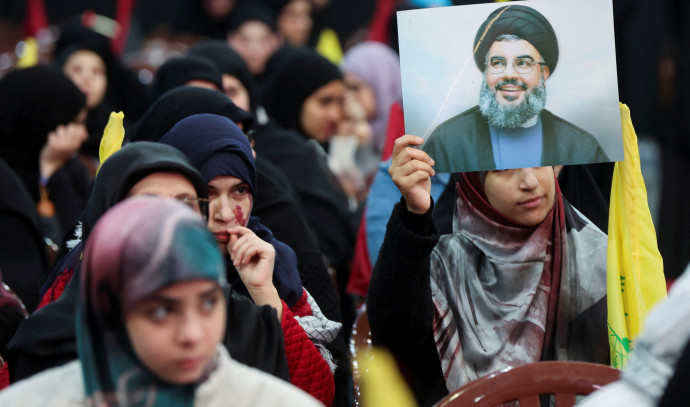Hezbollah threats on the afternoon of May 9 caused sirens to sound in thirty Israeli communities in northern Israel. Hezbollah has been increasing its attacks on Israel since May 5. This coincided with the tensions in Gaza and a Hamas attack on Israel on May 5. It also has coincided with reports in media that the US is withholding certain munitions from Israel.
The US decision to pause a shipment of 1,800 munitions of 2,000 lb bombs and also 1,700 of 500 lb bombs may be seen by Hezbollah as a sign that it can increase escalation to target Israel. Hezbollah follows Israeli and foreign media closely. It often re-reports stories from Israeli media to confirm its own assumptions. Hezbollah killed two IDF soldiers on May 7 in a drone attack and killed another IDF soldier on May 8 in attacks.
Hezbollah has also taken losses in the last several days because the Hezbollah-Israel clashes tend to be proportionate. That means that Hezbollah said that several people were killed on the road to Tyre on May 9, in a strike Hezbollah blamed on Israel.
Hezbollah’s drone capabilities
It appears Hezbollah is now increasingly using drones to attack Israel. Hezbollah is proud of its new drone capabilities. An article at Al-Mayadeen, the pro-Iran media outlet, noted on May 9 that “it is noteworthy, in this context, that the Islamic Resistance in Lebanon – Hezbollah – introduced drone weapons in the battle of the ‘Al-Aqsa Flood’, targeting Israeli sites and gatherings.”
The report goes on to say that Hezbollah has used drones to target Iron Dome batteries in Israel. It may have learned this tactic from the Houthis, the Iran-backed group that Hezbollah works with in Yemen. The Houthis used drones to target Saudi air defenses several years ago. “The Islamic Resistance [Hezbollah] possesses an integrated system of military capabilities, especially with regard to the declared air force, which is represented by drones, as the party possesses reconnaissance, assault and attack drones,” the Al-Mayadeen report said.
Hezbollah also has a plethora of other weapons. The Alma Research and Education Center recently held a conference. One panel looked at “Hezbollah – Between Intentions and Capabilities or Between a Terror Organization and a Social and Political Movement in Lebanon.” Tal Beeri, Head of the Research Department at the Alma Center, said that one of the main threats is Hezbollah precision munitions project. “It is not limited to Fatah 110 missiles, which have a range of 330 kilometers and a strike radius of up to 10 meters. Such a missile can hit a car in Tel Aviv if launched from the Bekaa Valley in Lebanon. The potential for precision quickly moved to Grads and Falak missiles. What is particularly concerning is the issue of short-range – comprising 65,000 rockets and missiles,” he said.
This is a major and emerging threat to Israel. Not long ago Hezbollah didn’t have precision guided munitions, and when it did begin to acquire them several years ago with Iranian support via Syria, it had only a handful. Now Hezbollah is increasing its capabilities. It is not clear if those capabilities have been reduced during seven months of clashes with Israel. It appears they have not been reduced.
Israel and Hezbollah generally clash only along the border. Hezbollah chooses the time and place to attack. Israel then responds. Hezbollah is not pre-empted. That lets it practice with its drones and munitions in its attack and hone its deadly skills for a future war. Hezbollah after targets various IDF posts in the north, including in the Golan. It feels impunity to do this.
Israel’s Defense Minister went to northern Israel on May 8 and met with the 91st division which is the IDF unit responsible for guarding the Lebanon border. Defense Minister Yoav Gallant indicated that it might be a “hot” summer if there is escalation with Hezbollah. He vowed to return Israeli residents to the border. So far Israel has not been able to make this promise come true.
So far Israeli officials have played down the pause in munitions shipments. However, the Biden administration is now speaking in one voice on this issue and it is hard to ignore. Israel’s enemies can read the reports and watch US President Joe Biden on CNN and watch US Secretary of Defense Lloyd Austin in his comments to a US Senate Subcommittee discussing the munitions shipments pause. And the pause could grow worse over the Rafah operation, setting Israel and the US on a collision course.
This is music to Hezbollah’s ears and the Iranian axis in general. On October 7 the US turned around an aircraft carrier in the Mediterranean to deter Hezbollah. US CENTCOM has also been key at trying to keep the Red Sea open to ship traffic against the Iran-backed Houthis. The US also helped intercept drones and missiles during the April 13-14 Iranian attack on Israel. Hezbollah has watched this all carefully.
There are other pieces of evidence that Hezbollah may feel more secure now. Reports at the Israeli website Mako said that Hezbollah had rejected a French proposal about Hezbollah withdrawing its Radwan force from the border and letting UNIFIL increase its presence and letting the Lebanese army have observation posts. It is not clear if this report is accurate and it could not be confirmed as of press time.
A report at Al-Akhbar media also said that the US had shown interest in the idea of the Lebanese army building watch towers along the border. The article also discussed financing for projects with the Lebanese army and said that France or Qatar could be involved. Qatar also hosts Hamas.
The overall perception is that Hezbollah may escalate now that it feels Israel is in a weaker position. Hezbollah already escalated when the Rafah operation began to go forward. This is likely at the behest of Iran which wants to aid Hamas in Gaza. Iran has sought to create a “perfect storm” to confront Israel with proxies in the region. The US decision to reduce munitions deliveries could be part of that storm.







